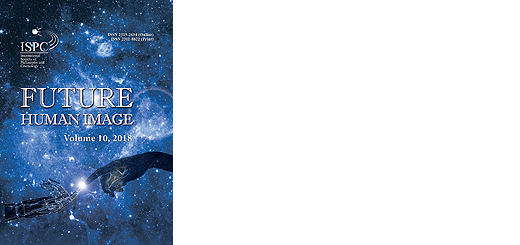Vivekananda’ Perspective of Universal Religion: Introspection
Vivekananda’ Perspective of Universal Religion: Introspection
Author(s): Rina Avinash Pitale PuradkarSubject(s): Comparative Studies of Religion, Indian Philosophy
Published by: Международное философско-космологическое общество
Keywords: Divine; Universal Religion; spirituality; Yoga; Tat Tvam Asi; Soul; unity; God;
Summary/Abstract: Religion is deeply rooted in man and his blood since many centuries ago. Still, it has been dominating man and his way of thinking and behaviour. Within the framework of human rights, religion is considered an inherent and individual right of the man. Therefore, religion is a very personal matter in man and his life. Within the Eastern Philosophical traditions, we can find a great thinker and the religious man who was not limited to the East and the one who spread that new ideal of the religion to the Western world. He is Swami Vivekananda. He was born in 1863 and expired in 1902. Within that short period, he did excellent contribution to the tradition of the Vedantic religion. To him, Religion is not just a talk and doctrines or theories, nor is it sectarianism Religion cannot live in sects and societies. It is a relationship between the soul and God. He explains that religion does not consist of erecting temples or building churches or attending public worship. As well as it cannot find in the books or in words or in lectures or in organizations. Religion consists of realization. Religion does not consist in subscribing to a particular creed or faith but in spiritual realization. Therefore, spiritual realization is religion. He said “I shall try to bring before you the Hindu theory that religions do not come from without, but from within. It is my belief that religious thought is in man’s very constitution, so much so that it is impossible for him to give up religion until he can give up his mind and body until he can give up his thought and life.” Religion is inseparable with a man and his life. Another thing is that it is within the man. Each and every one should understand God within their soul through self-realization. Religion is the manifestation of the divinity already within man. Therefore, it is not necessary to have doctrines or dogmas and intellectual argumentation. It is a realization in the heart of our hearts. It is touching God; it is feeling God and realizing that I am a spirit in relation to the universal spirit and all its great manifestations. In a simple manner, his way of understanding of religion is that man must realize God, feel God, see God, and talk to God. That is the religion. To him, material prosperity and wealth is not an important thing. However, the wealth of the spiritual thought is needed for the human progress. All the religions of the world together constitute one whole. For him, there existed only one Eternal Religion of which all other religions were only variations. Each religion has a special bent, a unique trait, some good points and this uniqueness is not the different buildings, languages, rituals, books etc employed in various religions, but the internal soul of every religion. Every religion has a soul behind it, and that soul may differ from the soul of another religion. Thus, all these religions are different forces in the economy of God, working for the good of mankind. All the religions of the world together constitute one whole. All religions are valid means to the same end. It is not necessary to change the viewpoint of one’s own religion. To enrich one’s life, one can accept some of the good points from another religion. Man and his true nature are already divine. But that divinity is hidden. Therefore, the realization of that divinity should be the purpose of life; that is the religion. It is the harmony of all religions so that it is one of best solutions for the prevalent religious conflicts in the world. This research paper will analyze Swami Vivekananda’s concept of universal religion and its implications on the prevalent religious conflicts in the world. In addition, the paper will try to investigate his views on the nature of a postmodern world where we can say ‘is there need for universal religion?’
Journal: Future Human Image
- Issue Year: 2018
- Issue No: 10
- Page Range: 70-75
- Page Count: 6
- Language: English

